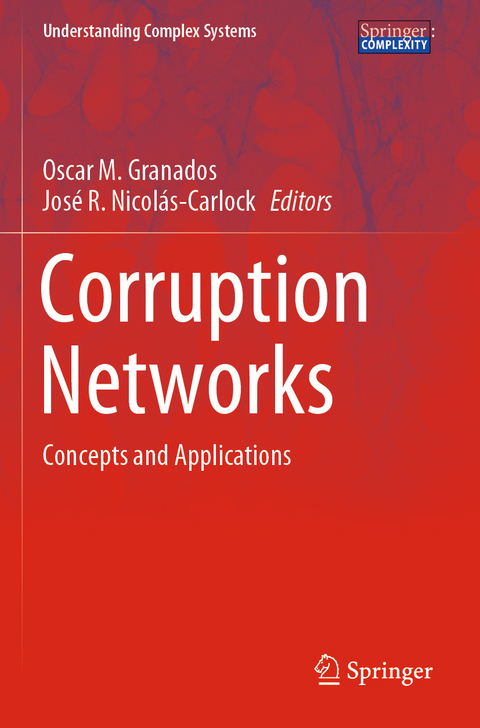
Corruption Networks
Springer International Publishing (Verlag)
978-3-030-81486-1 (ISBN)
This book aims to gather the insight of leading experts on corruption and anti-corruption studies working at the scientific frontier of this phenomenon using the multidisciplinary tools of data and network science, in order to present current theoretical, empirical, and operational efforts being performed in order to curb this problem. The research results strengthen the importance of evidence-based approaches in the fight against corruption in all its forms, and foster the discussion about the best ways to convert the obtained knowledge into public policy.
The contributed chapters provide comprehensive and multidisciplinary approaches to handle the non-trivial structural and dynamical aspects that characterize the modern social, economic, political and technological systems where corruption takes place.
This book will serve a broad multi-disciplinary audience from natural to social scientists, applied mathematicians, including law and policymakers.
Oscar M. Granados is an associate professor in the Department of Economics and International Trade at Universidad Jorge Tadeo Lozano. His research interests are the interdisciplinary study of economic and financial issues from complexity science, network science, applied mathematics, and artificial intelligence perspectives. He holds a PhD in Social Science ( Computational Social Science emphasis) from Pontificia Universidad Javeriana for his transdisciplinary work about the global emergence of the computational financial ecosystem.
José R. Nicolás-Carlock is a researcher interested in the interdisciplinary study of nature and society from the perspective of complexity science. He holds a PhD in Physics from the Autonomous University of Puebla, Mexico, for his theoretical work on universal fractal/non-fractal morphodynamics in nature. As a postdoctoral researcher at the Institute of Legal Research of the National Autonomous University of Mexico, he focused on the empirical study of enforced disappearances and political corruption scandals in Mexico, under a data, networks and complex systems approach.
Chapter 1. Corruption Networks: An Introduction.- Chapter 2. Social capital, corrupt networks, and network corruption.- Chapter 3. Social capital, corrupt networks, and network corruption.- Chapter 4. Predicting corruption convictions among Brazilian representatives through a voting-history based network.- Chapter 5. Networked Corruption Risks in European Defense Procurement.- Chapter 6. Identifying tax evasion in Mexico with tools from network science and machine learning.- Chapter 7. (The fight against) money laundering: it's all about networks.- Chapter 8. Financial Networks and Structure of Global Financial Crime.- Chapter 9. Corruptomics.
| Erscheinungsdatum | 27.09.2022 |
|---|---|
| Reihe/Serie | Understanding Complex Systems |
| Zusatzinfo | XVI, 158 p. 40 illus., 34 illus. in color. |
| Verlagsort | Cham |
| Sprache | englisch |
| Maße | 155 x 235 mm |
| Gewicht | 276 g |
| Themenwelt | Mathematik / Informatik ► Informatik ► Theorie / Studium |
| Naturwissenschaften ► Physik / Astronomie ► Theoretische Physik | |
| Schlagworte | complex socio-economic phenomenon • corruption and anti-corruption studies • Corruption Networks • Money laundering • network science • predictive corruption models • Public Policymaking • System Dynamics |
| ISBN-10 | 3-030-81486-6 / 3030814866 |
| ISBN-13 | 978-3-030-81486-1 / 9783030814861 |
| Zustand | Neuware |
| Haben Sie eine Frage zum Produkt? |
aus dem Bereich


